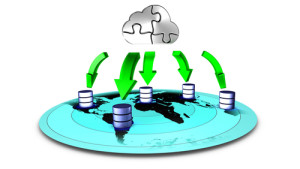 Computing and the way of doing business have never been the same since the cloud hovered over the business world. The early adopters of cloud computing extensively used public cloud solutions for their virtual desktop, remote desktop, and BYOD requirements.
Computing and the way of doing business have never been the same since the cloud hovered over the business world. The early adopters of cloud computing extensively used public cloud solutions for their virtual desktop, remote desktop, and BYOD requirements.
However, the last few years saw a growing concern for security issues and other potential operational challenges. Businesses started shifting to private clouds that offer more control over data and business processes. Big investments on infrastructure and management became an added concern.
As businesses continued to have rising demands that required the advantages of both private and public cloud applications, IT budgets shrunk. Cloud providers contemplated the crossbreeding of a private cloud and a public cloud and, thus, hybrid cloud computing was created. The hybrid cloud came to be known as the combination of any two or more cloud models – private, public, or community – customized to suit specific business requirements.
Main Benefits of Hybrid Cloud Computing
Can a business migrate its data and operational applications to the cloud and still have control over them? Can a business retain its current unscalable on-premise infrastructure and convert it to a scalable one using cloud computing solutions? Is it worth the investment?
The benefits of hybrid cloud computing are varied and can be customized to fit into an organization and its needs. Here are the common ones.
Spare the spend
Cost is one of the main considerations in doing business, and optimizing it is an advantage that a hybrid cloud offers. Businesses can configure their mix of hybrid cloud solutions to make sure that only the needed and easily scalable applications are included; at the same time, they can increase or decrease resources as needed. This is true for all types and sizes of businesses across all industries.
Experience a new level of flexibility
People can now consume content on-demand and collaborate dynamically because hybrid cloud solutions offer a new level of flexibility in almost all aspects of operational processes. A business can choose to store and process business critical data and applications in a private cloud while leveraging public clouds for less sensitive operations. Telecommuting, BYOD practices, virtualization, co-location facilities, and many more are flexible cloud applications for an increasingly mobile workforce and consumer market.
Do business in a secure environment
Security was an initial obstacle to cloud migration, but as more cloud “formations” evolved, security became a top priority for providers. Hybrid cloud options offer a delicate balance between what needs full control and what needs to go public; this maximizes the sky-high advantages that public clouds provide. Highly confidential information and processes can then be protected by corporate firewalls in private clouds.
Upscale or downscale your IT requirements
Most cloud service offerings allow businesses to increase or decrease existing resources to accommodate business changes. In a hybrid cloud environment, quick and easy provision of applications can help solve the problems of fluctuating demands and use. With the advantage of upscaling, overloading during peak periods becomes less of a concern while decreased use during lean periods helps save on costs.
Overall, the benefits of hybrid cloud computing allow organizations to experience the best of both worlds – full control in a private cloud and versatility in a public cloud. More importantly, the true value of any hybrid cloud solution is its ability to help businesses improve performance, increase productivity, and build a robust bottom line.